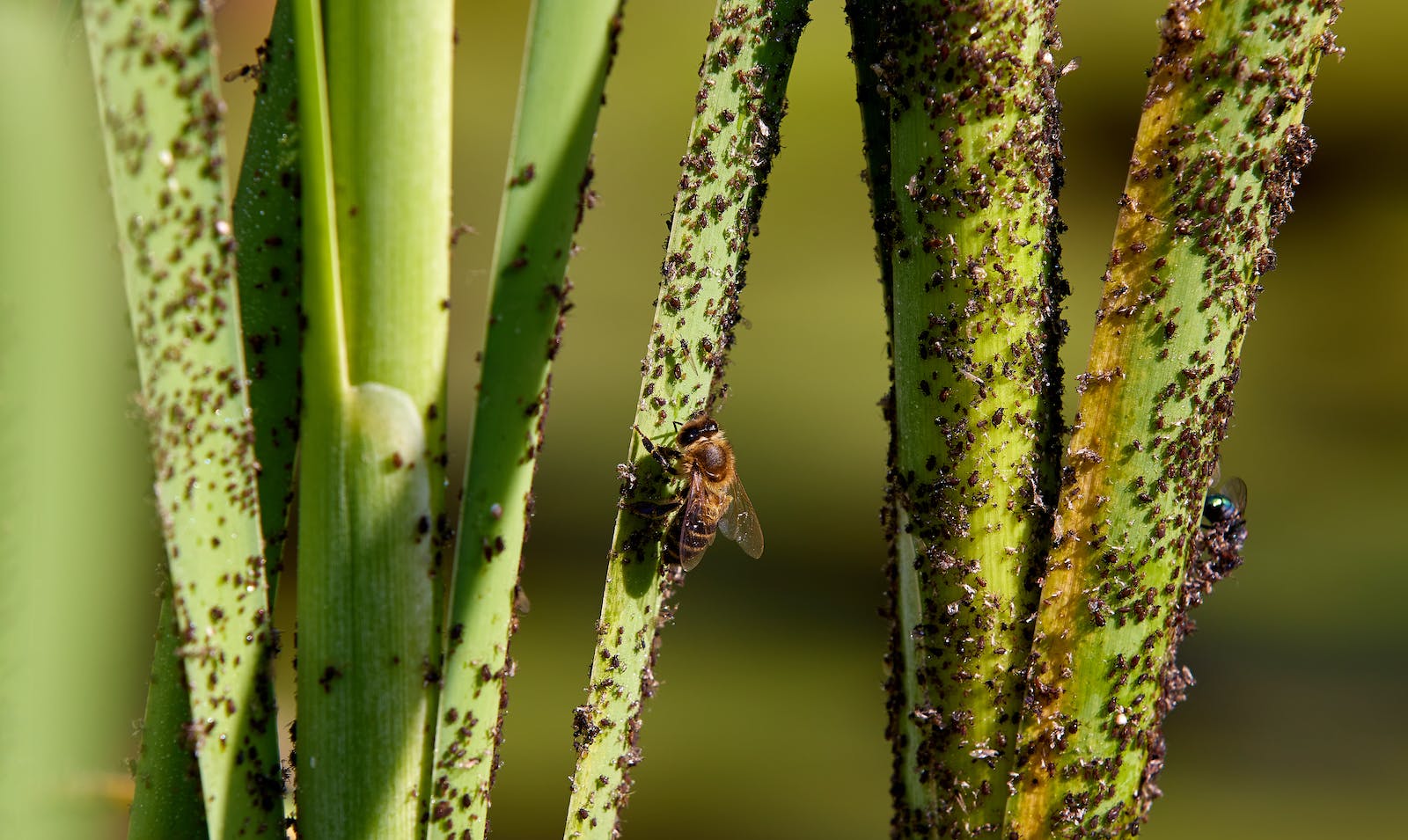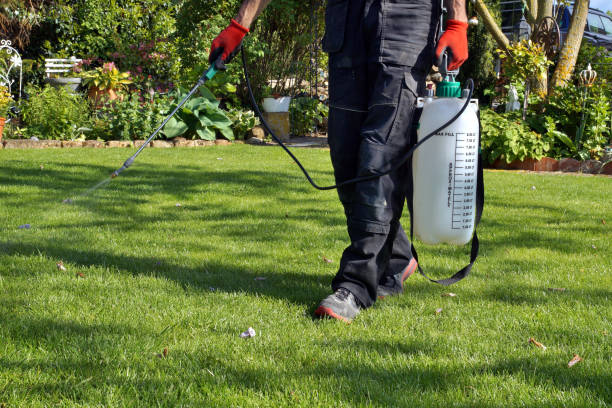Pests and Weeds: Conquer the Enemies of Your Garden with These Expert Tips
As a gardener, you know that pests and weeds can be a nightmare to deal with. They can ruin all your hard work and leave you feeling frustrated and defeated. But don’t worry, with the right knowledge and tools, you can conquer these enemies and keep your garden healthy and thriving. In this article, we’ll cover everything you need to know about pests and weeds in the garden, from identification and control to natural remedies and prevention methods.
Introduction to Pests and Weeds in the Garden
Pests and weeds are common problems in any garden. Pests can include insects, mites, rodents, and other animals that can damage or kill your plants. Weeds, on the other hand, are unwanted plants that can compete with your garden plants for nutrients, water, and sunlight. They can also harbor pests and diseases, making them a double threat to your garden.
The key to controlling pests and weeds is to identify them early and take action before they become a major problem. Regular monitoring and maintenance of your garden can help you stay on top of any issues and prevent them from getting out of hand.
Common Pests Found in Gardens
There are many types of pests that can be found in gardens, and each one can cause different types of damage. Some common pests include:
Aphids
These small insects can be found on the underside of leaves and can cause deformities in your plants. They also excrete a sticky substance called honeydew, which can attract other pests and cause fungal growth. Ladybugs and spiders eat aphids which can help to deter the critters.

Caterpillars
Caterpillars are the larvae of moths and butterflies and can eat large amounts of foliage. Gypsy moths and spotted lanternflies are common invasive pests. They destroy trees and the natural environment for native species of insects and animals. If you see these pests you need to dispose of them properly to prevent more from ruining the environment both in and outside of your garden.
Slugs and Snails
These slimy creatures can eat holes in your plants and leave behind a trail of slime. They are most active at night and can be found hiding in moist areas of your garden. Adding coffee grounds or eggshells to your garden beds can help to deter these critters as they do not like traveling over rough and jagged surfaces.
Spider Mites
These tiny pests can be difficult to see with the naked eye but can cause significant damage to your plants. They feed on the sap of your plants and can cause yellowing and curling of leaves. These are best treated with neem oil if they appear on your plants, but the best way to save your plants is to prevent them from getting on your plants in the first place. If you have a greenhouse garden keeping the air moving with fans will help deter them from clinging to your plant’s leaves.
Identifying and Controlling Garden Pests
The first step in controlling garden pests is to identify them. Look for signs of damage, such as holes in leaves, chewed fruit, or wilting plants. You can also look for the pests themselves, such as aphids, spider mites, or caterpillars.
Once you’ve identified the pest, there are several methods you can use to control them. One option is to use insecticides, which can kill the pest but can also harm beneficial insects and the environment. Another option is to use natural remedies, such as neem oil or garlic spray, which can repel or suffocate the pest.
Companion planting can also be effective, as certain plants can repel pests or attract beneficial insects that will eat the pests.
Natural Remedies for Pest Control
If you prefer to use natural remedies for pest control, there are many options available. Here are a few to consider:
Neem Oil
Neem oil is derived from the neem tree and can be used to repel a variety of pests, including aphids, caterpillars, and spider mites. Depending on the neem oil that you buy it may need to be diluted so make sure to read the directions on the back of the bottle.
Garlic Spray
Garlic spray can be made by blending garlic bulbs and water and then straining the mixture. It can be sprayed on your plants to repel pests and prevent fungal growth.
Vinegar
Fungal growth can also be killed with vinegar but you must do your research before spraying it. For many common plants vinegar can be fatal, especially if not applied correctly so you need to know what plants vinegar can work with and which it cannot.
Diatomaceous Earth
It can be sprinkled around your plants to kill pests by drying out their exoskeletons.
Basil
Growing basil next to your crops can help to deter pests like flies, hornworms, and mosquitoes. They are not a fan of the pungent smell basil gives off.
Common Weeds Found in Gardens
Weeds can be just as troublesome as pests, and there are many different types to watch out for. Some common weeds include:
Dandelions
Dandelions are perennial weeds with a deep taproot that can be difficult to remove.
Crabgrass
Crabgrass is an annual weed that can grow in thin or bare areas of your lawn. It can spread quickly and is difficult to remove once it has taken hold.
Bindweed
Bindweed is a creeping perennial weed that can climb up your plants and strangle them.
Chickweed
Chickweed is an annual weed that can grow in dense patches and compete with your garden plants for nutrients and water.
Identifying and Controlling Garden Weeds
Weeds can be just as difficult to control as pests, but there are several methods you can use to keep them in check. The first step is to identify the weed and determine whether it is annual or perennial. This will help you determine the best control method.
One option is to pull the weeds by hand, making sure to remove the entire root system. You can also use a hoe or cultivator to remove weeds from larger areas. Another option is to use herbicides, which can kill the weeds but can also harm beneficial plants and the environment.
Natural Remedies for Weed Control
If you prefer to use natural remedies for weed control, there are several options available. Here are a few to consider:
Vinegar
Vinegar can be used as a natural weed killer by spraying it directly on the weed. It works by drying out the leaves and preventing photosynthesis. Vinegar can also be used to kill fungus and mold.
Boiling Water
Boiling water can be poured directly on weeds to kill them. It works by cooking the leaves and stem of the weed.
Mulch
Mulch can be used to prevent weeds from growing by smothering them and preventing sunlight from reaching the soil.
Prevention Methods for Pests and Weeds
Prevention is always the best method for controlling pests and weeds. Here is how you can prevent pests and weeds before they appear.
Keep Your Garden Clean
Remove any dead or diseased plants, as well as fallen leaves and fruit, which can attract pests and diseases.
Rotate Your Crops
Planting different crops each year can prevent pests and diseases from establishing themselves in the soil.
Use Healthy Soil
Add compost to your soil to improve its health. If you have any plants in pots make sure that you have drainage holes in the bottom of the pot to prevent rot from killing your plants.
Tools and Equipment for Pest and Weed Control
There are several tools and equipment you can use to control pests and weeds, including:
Handheld Sprayer
A handheld sprayer can be used to apply insecticides or natural remedies to your plants. This will help you control how much product to apply to the plants or pests.
Hoe or Cultivator
A hoe or cultivator can be used to remove weeds from larger areas. Make sure to get all of the roots of the plant when removing it from the ground.
Row Covers or Netting
Row covers or netting can be used to keep pests away from your plants. This will also help to deter birds from eating your berries. Make sure that pollinators can still poke through the netting to pollinate your plants.
Conclusion and Final Thoughts
Pests and weeds can be frustrating to deal with, but with the right knowledge and tools, you can keep them under control. Regular monitoring and maintenance of your garden can help you stay on top of any issues and prevent them from becoming major problems. By using natural remedies and prevention methods, you can keep your garden healthy and thriving without harming the environment or beneficial insects.
